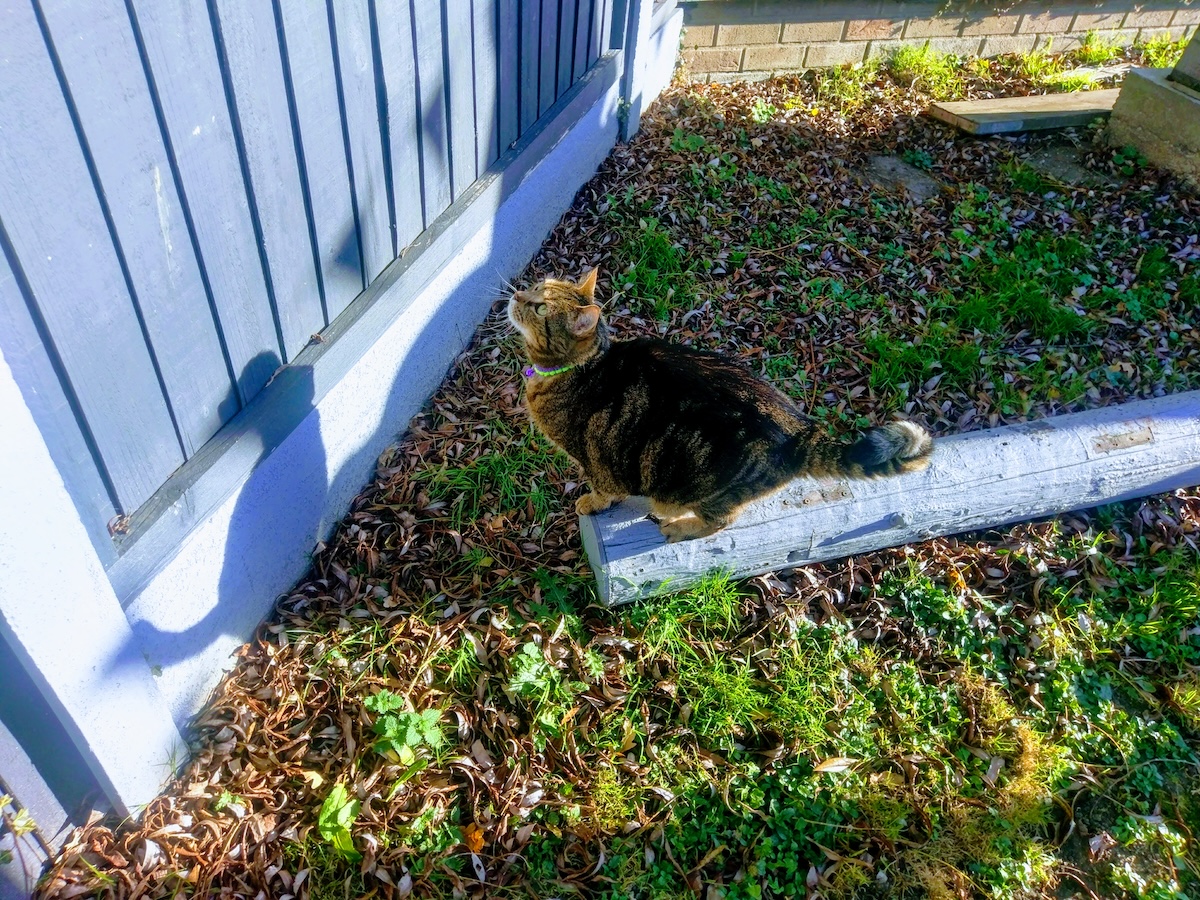Click to Skip Ahead
There’s nothing more exciting than bringing home a brand-new feline. Congratulations on the new addition to the family! Plenty of love, laughter, fun, and games lie ahead. You’ll need to get your home prepared for the arrival of your new kitty. There’s quite a bit of equipment and supplies you need to have on hand for when they arrive. You don’t want to be in a last-minute panic trying to organize everything.
If you haven’t considered which items to purchase, you can examine our quick kitten checklist below. It should cover just about everything you need to get started. As you get to know your little cat, you can change your list of essential supplies to suit your needs better.
The New Kitten Checklist Supplies
- Food and Bowls
- Treats and Toys
- Litter Box and Litter Box Supplies
- Collar and Tag
- Bed
- Kitty Carrier
- Grooming
- Scratching Enrichment
Food and Bowls
1. Kitten Food
- Our Choice: Smalls Smooth Bird Recipe

Like adults, kittens require high-quality cat food that supports their health and development. Although pet food manufacturers produce formulations for all stages of feline growth, Smalls cat food is designed for kittens, adults, and seniors. Four recipes are available in pâté (smooth) and chopped (ground) varieties.
The Smooth Bird recipe contains chicken and chicken liver and is balanced with essential vitamins and minerals to ensure your kitten stays energized and healthy. Instead of shopping at the grocery store or pet store every week, you can order a monthly shipment from Smalls online.
2. Food and Water Bowls
- Our Choice: Hepper NomNom Bowl

Most food and water bowls are unsuitable for kittens and adult cats, but Hepper’s NomNom bowls are ideal for felines of all sizes. If your new addition to the home is a messy eater, Hepper’s cleverly designed plastic frame catches the water and food that would usually land on the floor.
The stainless-steel bowls are only 1 inch deep to prevent whisker fatigue, and the tray and bowls are dishwasher safe. Since the NomNom Bowl is designed for kittens and adults, you don’t have to buy another one when your kitty matures.
At Catster, we’ve admired Hepper for many years and decided to take a controlling ownership interest so that we could benefit from the outstanding designs of this cool cat company!
Treats and Toys
3. Treats

Blue Buffalo’s Baby Blue Savory Salmon treats are kitten-formulated and bite-size. They are high in salmon-sourced protein and packed with all the vitamins and minerals healthy kittens need to develop. They are also high in antioxidants to help keep the kitty’s immune system strong.
They are free of nasty preservatives and artificial flavors and contain no corn, wheat, soy, or by-product ingredients. As a bonus, these treats have a very reasonable price tag.
4. Toys
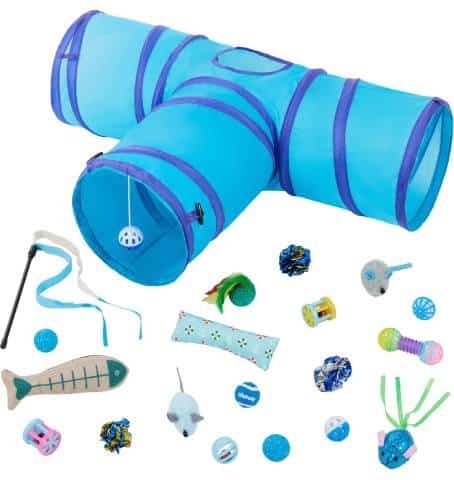
Your kitten will love you forever if you produce this pack of toys for their entertainment. You’ll be glad you did since it will distract them from the curtains, furniture, and carpets! This awesome toy bundle from Frisco includes stuffed mice, wands with dangly strings, balls, bells, and more. The cherry on top is the inclusion of a cool tri-tunnel so that your cat can hide and ambush everyone who walks past.
Litter Box Supplies
5. Litter Box and Poop Scoop
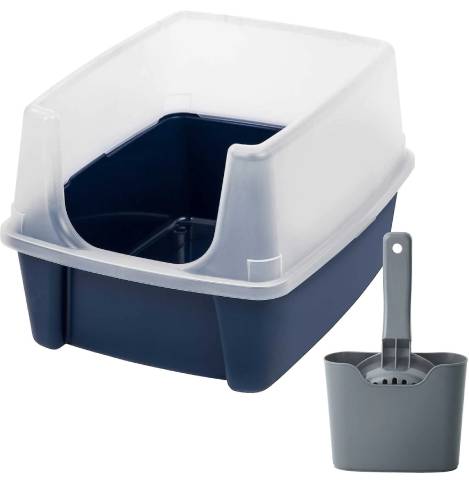
Frisco’s litter box is open-topped and easy to clean. It has high sides to prevent litter spray when your playful kitty is testing litter box boundaries. The scoop is well designed to let fine litter fall through the slots back into the box while retaining solid waste and clumped-up damp litter. It has a handy little caddy to house it when it is not in use.
The disadvantage of an open litter box is that it can get slightly malodorous, particularly immediately after the kitty does their business. Fortunately, cat litter is designed to absorb those unpleasant odors. As long as your kitty’s box is kept clean, this shouldn’t pose a problem.
6. Kitty Litter

Dr. Elsey’s is a fantastic “training” kitten litter. It contains natural herbal extracts that attract the kitten to it. It is fine-grained, which is ideal for those little paws. It is non-clumping and dust free and can be used for kittens aged 8 weeks to 1 year. It also has exceptional odor control.
7. Litter Box Liners
- Our Choice: Fresh Kitty Super Jumbo Thick Litter Box Liners

Litter box liners are a great idea, provided your little darling doesn’t shred them to bits! Liners make litter box cleaning a breeze, as well as being a hygienic means of discarding soiled litter.
8. Deodorizer
Incorporating an additive into your kitten’s litter box will help reduce unpleasant odors. Our favorite product is Hepper’s Advanced Bio-Enzyme Cat Litter Deodorizer. This powerful pet-friendly agent combats smells upon contact and will help keep your litter area smelling fresh and clean.
At Catster, we’ve admired Hepper for many years and decided to take a controlling ownership interest so that we could benefit from the outstanding designs of this cool cat company!
9. Poop Bags
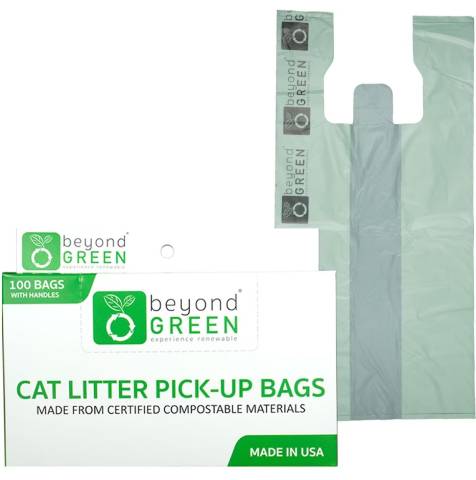
BeyondGreen cat poop bags are a hygienic way of disposing of your cat’s waste, and they are fully compostable, too. Flustering your cat’s waste down the toilet is not advisable as it may contain harmful parasites, such as toxoplasmosis. Additionally, any kitty litter that is stuck to the waste may clog up your toilet or septic system.
10. Litter Box Mat
- Our Choice: Frisco Rectangular Cat Litter Mat

Placing a litter box mat under your kitten’s litter box is a very sensible idea. These mats are designed to trap litter that comes out of the litter box either on your kitty’s feet or while digging.
They are easy to shake or out over the trash can once a day.
If your kitten hasn’t yet learned to use the litter box and goes outside of it, this mat is also easy to rinse with water. A litter box mat will help keep your kitty’s toilet area and home clean and tidy.
11. Stain and Odor Control

Having a furry feline youngster around is bound to result in a few accidents. It will take them a while to master the litter box. They may even be a bit stubborn about wanting to use it and persist in using other areas in the house.
This pet stain and odor eliminator spray from Hepper is bio-enzyme based, so it is easy on the environment and safe for your kitten. It is excellent at breaking down tough stains and removing nasty odors. If your kitten soils inappropriately anywhere in the house, you should spray it immediately, then clean the mess up to erase the odor and hopefully dissuade your cat from using that area again.
At Catster, we’ve admired Hepper for many years and decided to take a controlling ownership interest so that we could benefit from the outstanding designs of this cool cat company!
Collar and Tag
12. Kitten Collar
- Our Choice: Hepper Hemp Breakaway Cat Collar
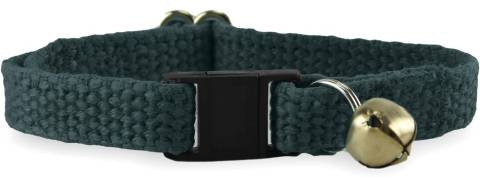
If your kitten spends time outside, you need a sturdy collar that won’t get hung up on a branch or object and harm your cat. Hepper’s Hemp Breakaway Collar has a buckle that detaches if it gets snagged, and it has a detachable bell that warns birds and other small animals that your kitty is on the prowl.
The tight, hemp sticking on the collar is weather-resistant and incredibly durable. The breathable material is comfortable for even the fluffiest cats, and since the collar is adjustable, you don’t have to buy a new one when your kitten grows into an adult.
At Catster, we’ve admired Hepper for many years and decided to take a controlling ownership interest so that we could benefit from the outstanding designs of this cool cat company!
13. ID Tag
- Our Choice: Frisco Stainless Steel Personalized Cat ID Tag
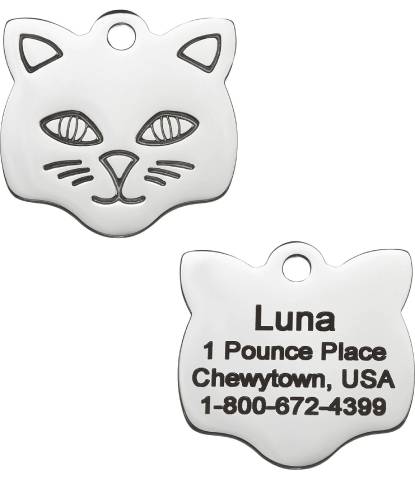
Even if your kitty never ventures into the great outdoors, it’s not a bad idea to get an ID tag made for their collar. Some kittens and cats are great escape artists and will grab any opportunity to escape. If this happens, you want your kitten to have some identification on them so that they can be returned.
Bed
14. Cat Bed
- Our Choice: Hepper Pod Bed
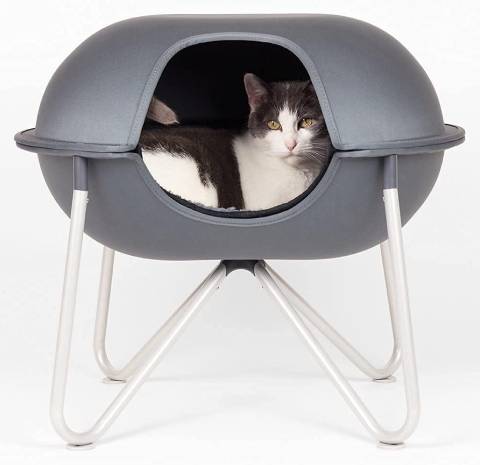
You’ve probably noticed when shopping for cat beds that most brands use similar designs and materials, but the Hepper Pod Bed stands apart from the competition. Its elevated design ensures your kitten will stay toasty and comfortable, and the plush fleece liner provides a comfy surface for them to nap.
The liner is machine washable, and the steel legs have rubber feet to protect your floor and prevent slipping. It’s best for cats that weigh 25 pounds or less but can support big felines that weigh up to 40 pounds!
At Catster, we’ve admired Hepper for many years and decided to take a controlling ownership interest so that we could benefit from the outstanding designs of this cool cat company!
Kitty Carrier
15. Cat Carrier
- Our Choice: EliteField Soft-Sided Dog & Cat Carrier Bag
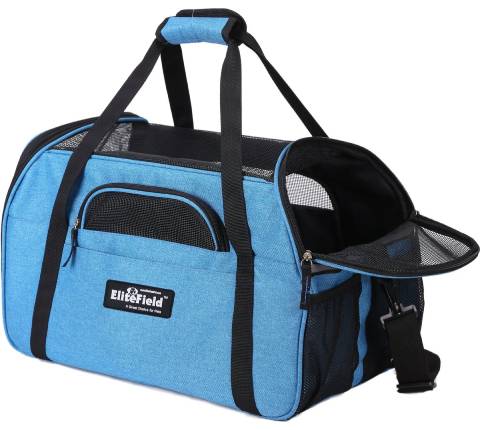
Have you thought about how you’re going to transport your precious new bundle home? You might be able to borrow a cat carrier for the job, but it’s a good idea to invest in one as you will be using it often during your cat’s life.
There will be visits to the vet for scheduled check-ups as well as for their sterilization appointment. The EliteField soft-side carrier is light and durable and will be comfortable for your kitty. It has the added advantage of being airline-approved and carries an impressive 3-year warranty.
Grooming
16. Kitten Brush
- Our Choice: Li’l Pals Kitten Bristle Brush
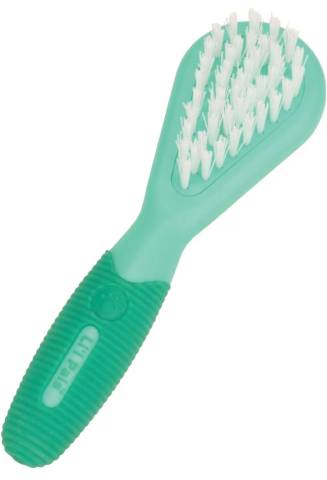
Your tiny new kitten is delicate but still enjoys being groomed. This brush from Li’l Pals is specially designed and made for soft kitten skin and fur. Although it will still be fine to use once your kitten is grown up, it may not be as effective.
17. Shampoo
- Our Choice: Hepper’s No-Rinse Pet Shampoo
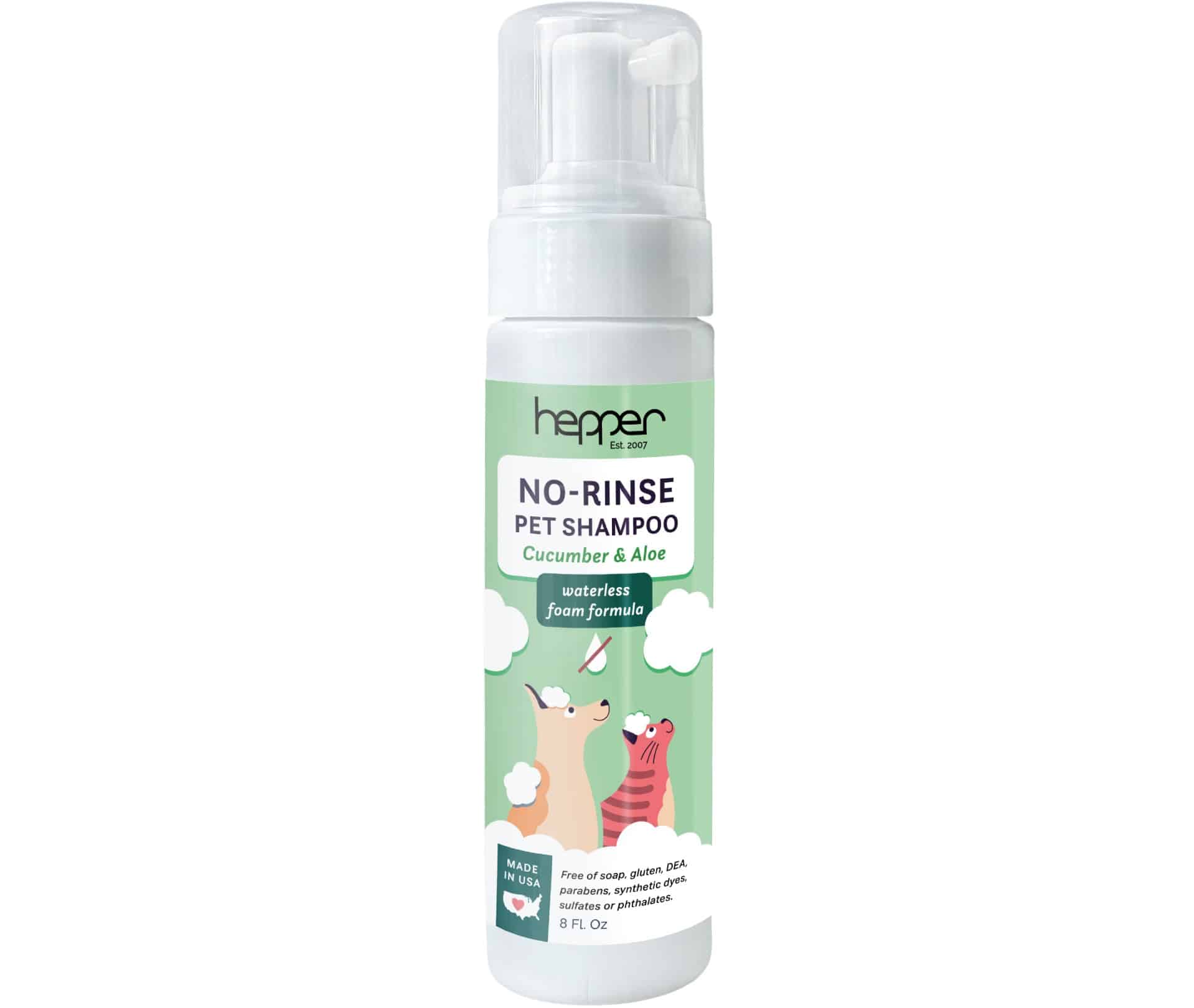
Hepper’s No-Rinse Pet Shampoo is another must-have. While cats in general are fairly good at grooming themselves, you may find your kitten needs an extra hand, or paw, to keep their fur fresh and mess-free. It smells great, is pH-balanced, and is made with all-natural ingredients.
At Catster, we’ve admired Hepper for many years and decided to take a controlling ownership interest so that we could benefit from the outstanding designs of this cool cat company!
18. Wipes
- Our Choice: Hepper’s Wash Wipes
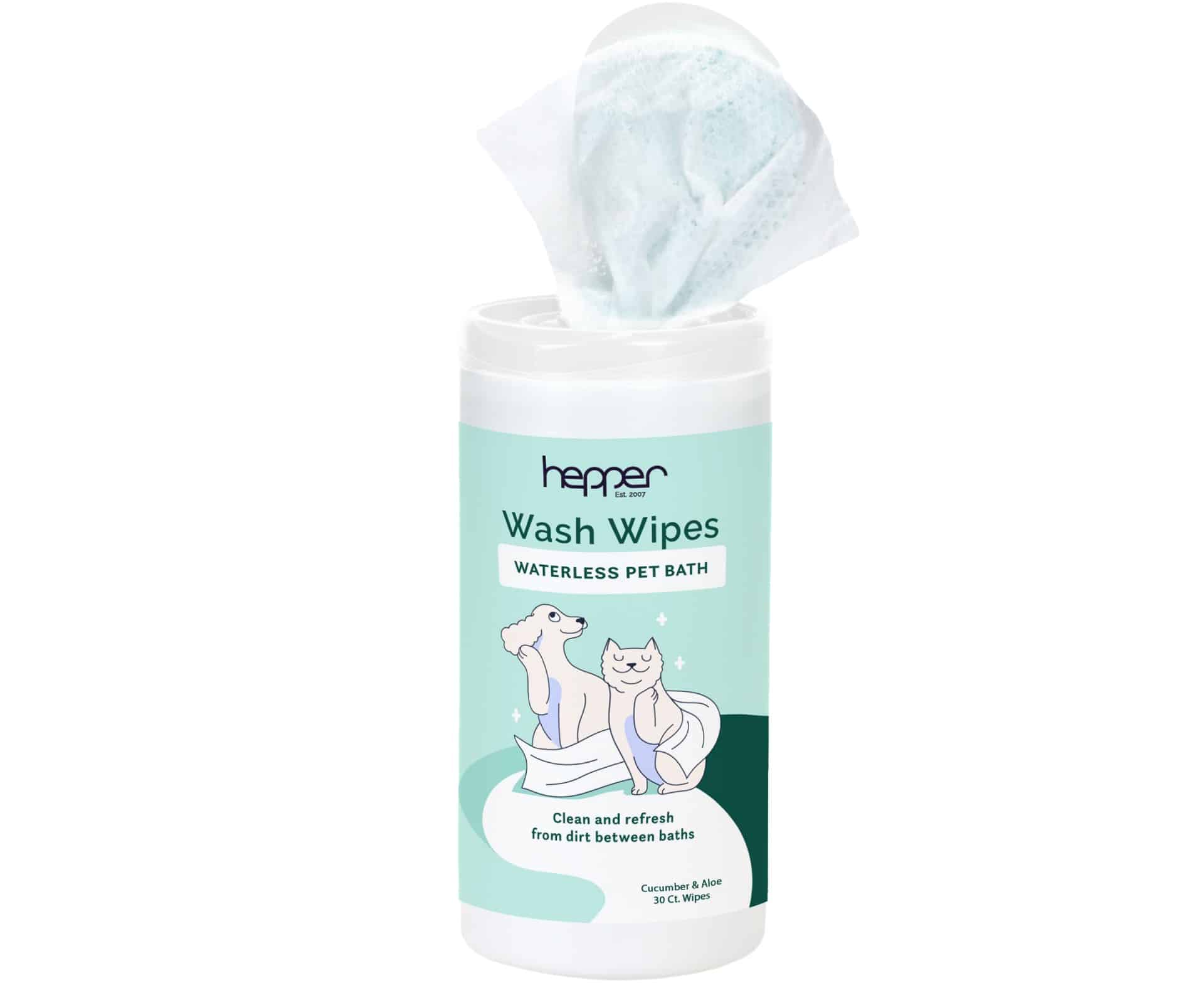
Having a pet-friendly wipe on hand is a great way to clean up kitty messes in a pinch. Hepper’s Wash Wipes are our favorite because the combination of a durable fabric and a gentle cleansing formula is the perfect mix for effectively lifting dirt and debris. They are also hypoallergenic, making them a great option for sensitive kittens!
At Catster, we’ve admired Hepper for many years and decided to take a controlling ownership interest so that we could benefit from the outstanding designs of this cool cat company!
Scratching Post and Kitty Condo
19. Cat Condo
- Our Choice: Frisco 48-in Faux Fur Cat Tree & Condo
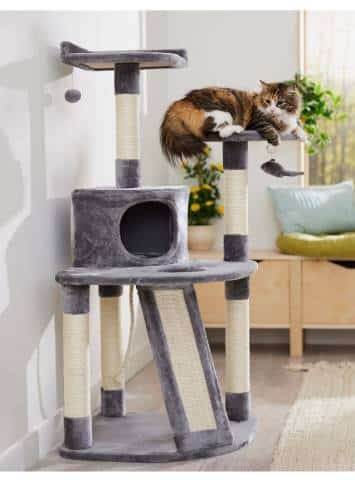
The Frisco 48-inch Cat Tree & Condo is sure to be a hit with your kitten! It has multiple high-rise platforms for perching and keeping an eye on things, as well as a cozy little hide-out. It also has dangly toys that will provide hours of swatting fun.
The thing we love best about this condo is that it has multiple scratching posts included, so you don’t need to buy them separately. This is especially appealing if you have a small apartment that can’t handle clutter.
20. Scratcher
- Our Choice: Hepper Hi-Lo Cat Scratcher

The Hepper Hi-Lo Cat Scratcher is the perfect scratcher for several reasons. Its three-angle design promotes physical activity on different levels which is a great option for growing a kitten. The cardboard inserts entice scratching and steer cats away from clawing at furniture and curb curiosity about potentially unsafe house plants. It’s a sleek and beautiful addition that any pet owner would be happy to have on display in their home.
At Catster, we’ve admired Hepper for many years and decided to take a controlling ownership interest so that we could benefit from the outstanding designs of this cool cat company!
Final Thoughts
Bringing home a new kitten is such an exciting time! There are initial set-up costs to help your new addition feel welcome and settle in, but most of the products are affordable. We hope that this checklist has helped you make any last-minute tweaks to your supply list.
We also hope that you have as much fun shopping for all of your kitty’s new gear as we had to compile the list for it! A few of these items are kitten-specific and will need to be upgraded as your kitten becomes a cat.
You might also like:
Featured Image Credit: Yuriy Golub, Shutterstock











